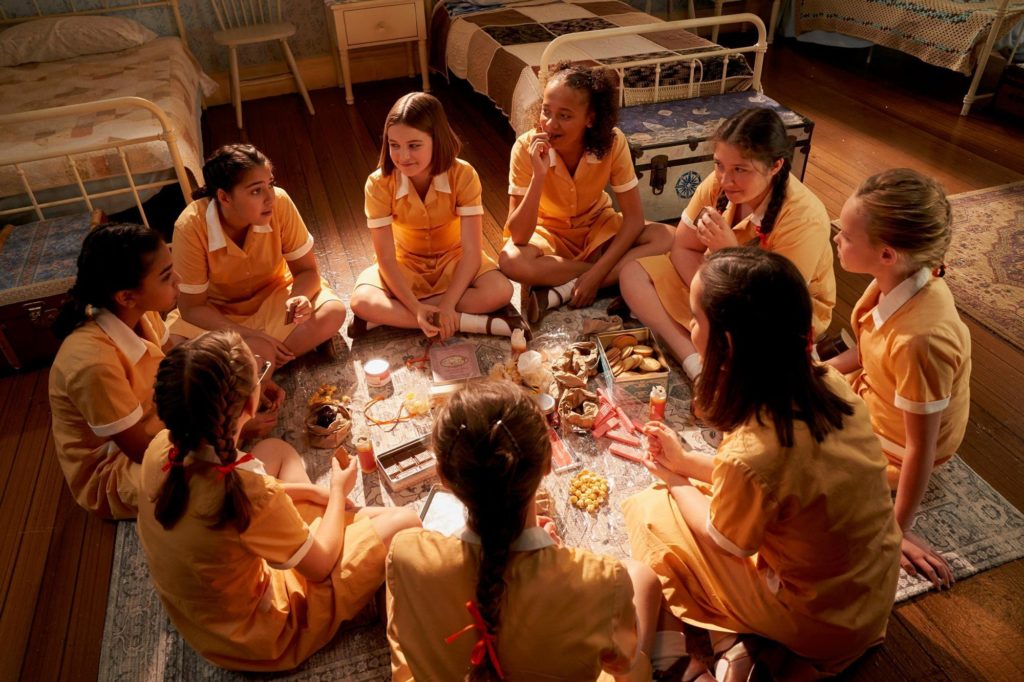
Like many other young girls, I grew up reading Enid Blyton’s Malory Towers series. I longed to go to the all-girls boarding school on the Cornish coast, play lacrosse, and have midnight feasts. I was therefore very excited about the release of a 13-part TV adaptation of Malory Towers on CBBC and BBC iPlayer.
Set in post-war Britain, the series follows twelve-year-old Darrell Rivers who arrives at Malory Towers after having to mysteriously leave her old school. There, she meets troublemaker Alicia, quiet Sally, and the spoilt Gwendoline Lacey. The series is written by screenwriters Rachel Flowerday and Sasha Hails and has a predominantly female cast, with many BAME actresses. Also, diverging from Blyton’s original story, Darrell is diagnosed with dyslexia and it is interesting to see the portrayal of learning difficulties onscreen.
For those like me who love the books, the characters and the settings are immediately recognisable. The adaptation has many familiar elements of Blyton’s school stories – the ‘jolly hockey sticks’ tone, posh accents, and moral lessons. Yet the TV series aims to emphasise a subtly feminist message. The headmistress, Miss Grayling, wants Malory Towers to give girls the confidence and ability to achieve their goals. Consequently, many students are excited about their future careers. Darrell, for example, wants to be a doctor so is thrilled at the sight of the school’s science lab. Although Gwendoline is mocked for preferring sewing over swimming and her desire to be ‘ladylike’, there is an acknowledgement that some girls would prefer to enter into society. The desire to marry and build a family is also shown to be an ambition some wish to follow. Malory Towers’ feminism comes from ensuring the girls have the space and ability to choose their own paths in life.
The whole series is a lovely celebration of female friendship. The charm comes from seeing the girls having fun and supporting one another. They eat midnight feasts, play tricks on Matron, and even help Darrell complete chores for her detention. Gwendoline’s struggle to make friends is also sensitively done. Although Gwendoline is selfish, this is often because she is jealous of the others’ friendships and hasn’t learned how to make her own. There are moments of real sympathy as she struggles, meaning she remains a likeable character. Female friendship is of utmost importance in the show, and the most touching moments come from the girls bonding together.
It is perfect, cosy, nostalgic TV. I would highly recommend escaping for a couple of hours to the comforting world of Malory Towers for all girls — both young and old.
-Hannah Wilson
Junior Girl
Girl Museum Inc.
